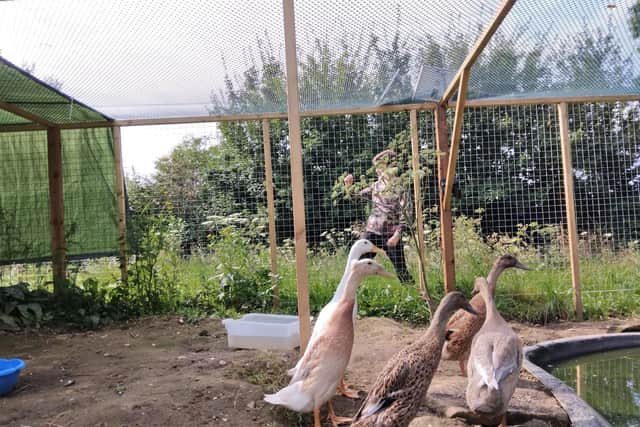Petworth school’s farm teaches children life cycles, maths and much more
and live on Freeview channel 276
What initially started as an allotment area and an orchard but has grown to 21 chickens, two pygmy goats, four Indian runner ducks and two sheep. There is also a bee hive.
He said: “Children need to have the opportunity to learn in different situations and get stuck in with different aspects of our curriculum.
Advertisement
Hide AdAdvertisement
Hide Ad“Learning is at the heart of our farm, however we recognise the importance of giving the children opportunities to just be with the animals as some families cannot have pets at home. Every break time the children are in with the animals, caring and playing with them.”


Throughout the week there is a rota so each class is responsible for the animals.
He said: “Our farm gives the children different way to learn about science, English, maths, Design and Technology, the environment, eco and much more.
“Mrs Dallyn, Mrs Durrant and Mrs Wiggs have been amazing. It is up to our teachers to ensure the variety of resources and initiatives we have, which includes our farm, Forest School, Film Farm Fork, are used effectively to give our children different ways to learn.
Advertisement
Hide AdAdvertisement
Hide Ad“It takes learning away from a worksheet and makes it real to the children e.g. completing science experiments using the poly tunnel and comparing results.”
The school has taught the children a number of different things from how to care for animals, to recycling, but also about life cycles. The children were able to see the whole process from the eggs being incubated to the birth and releasing the ducks into their enclosure. It also gives them the opportunity to discuss what happens when animals die.
The children and staff have mentioned about getting pigs
John said: “We are lucky as children constantly come up with different ideas and are very keen to ensure these happen.
“It is a fine balance between wanting to please the children and the responsibility of introducing more animals.
“The children give up their free time to develop their learning space and I am extremely grateful for their enthusiasm.